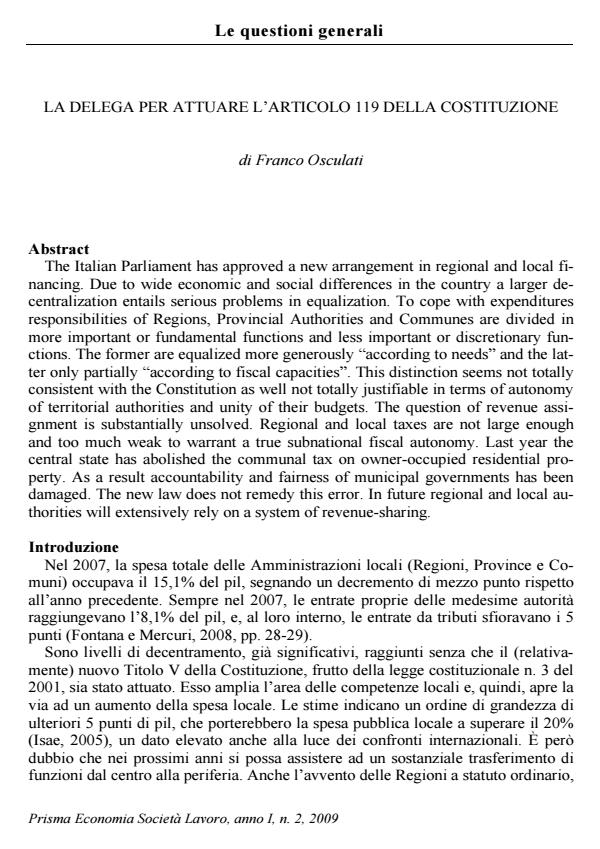La delega per attuare l'art. 119 della Costituzione
Journal title PRISMA Economia - Società - Lavoro
Author/s Franco Osculati
Publishing Year 2009 Issue 2009/2
Language Italian Pages 17 P. 29-45 File size 110 KB
DOI 10.3280/PRI2009-002004
DOI is like a bar code for intellectual property: to have more infomation
click here
Below, you can see the article first page
If you want to buy this article in PDF format, you can do it, following the instructions to buy download credits

FrancoAngeli is member of Publishers International Linking Association, Inc (PILA), a not-for-profit association which run the CrossRef service enabling links to and from online scholarly content.
La delega per attuare l'art. 119 della Costituzione - The Italian Parliament has approved a new arrangement in regional and local financing. Due to wide economic and social differences in the country a larger decentralization entails serious problems in equalization. To cope with expenditures responsibilities of Regions, Provincial Authorities and Communes are divided in more important or fundamental functions and less important or discretionary functions. The former are equalized more generously "according to needs" and the latter only partially "according to fiscal capacities". This distinction seems not totally consistent with the Constitution as well not totally justifiable in terms of autonomy of territorial authorities and unity of their budgets. The question of revenue assignment is substantially unsolved. Regional and local taxes are not large enough and too much weak to warrant a true subnational fiscal autonomy. Last year the central state has abolished the communal tax on owner-occupied residential property. As a result accountability and fairness of municipal governments has been damaged. The new law does not remedy this error. In future regional and local authorities will extensively rely on a system of revenue-sharing.
Franco Osculati, La delega per attuare l'art. 119 della Costituzione in "PRISMA Economia - Società - Lavoro" 2/2009, pp 29-45, DOI: 10.3280/PRI2009-002004